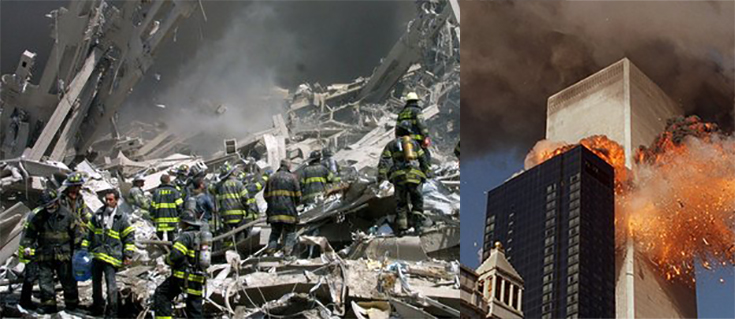Report Shows “Staggering” Signs of Ill Mental Health Among 9/11 First Responders
Report Shows “Staggering” Signs of Ill Mental Health Among 9/11 First Responders
Dementia, PTSD, and more
A recent report on 9/11 responders has found that many of these individuals are suffering from numerous mental health issues, including dementia (or are showing signs that they will develop it as they age).
A recent report on 9/11 responders has found that many of these individuals are suffering from numerous mental health issues, including dementia (or are showing signs that they will develop it as they age). Doctors and researchers are astounded by this discovery, especially because the average age of those who participated in the study was only 53. These disorders are most often diagnosed in those over the age of 70, which prompted researchers to call the results of their study “staggering.” [1]
According to the report, which was a joint effort between several American and British institutions, 12% of first responders have classic symptoms of post-traumatic stress disorder, or PTSD, or some other form of cognitive impairment. The results were published in
Of 818 people who participated in the study, 104 of them showed signs of a cognitive impairment and 10 were thought to have dementia. When researchers applied the statistics of their study to the 33,000 first responders, they believe around 5,000 could suffer from cognitive impairments and 800 might currently suffer from dementia. This number could also grow over time.
“Thousands of responders who helped in search, rescue, and clean-up efforts after the World Trade Center were exposed to an extraordinary array of psychological traumas and toxic exposures. Although few were physically injured by their efforts, many responders witnessed the disaster or death and dismemberment of others, helped civilians flee, lost colleagues in the tower collapse, and dug through debris to search for survivors.”
The study also suggests that 1/5 of those involved in response efforts developed PTSD, which is similar to what many war veterans face.
Many responders state that they began to have flashbacks and nightmares in 2002.
Aside from the PTSD and early on-set dementia, many of those who were on the seen have also been diagnosed with cancer. By 2014, claims for cancer-related expenses due to 9/11 response was up to $50 million. This number is expected to increase significantly to 2020, since Obama extended the deadline for responders with cancer to make claims.
For many, the fear of having cancer is just as great, if not worse, than the flashbacks and nightmares. [3]
This year will be the 15th anniversary of the 2001 terrorist attacks.
| About Anna Scanlon: | |
| Anna Scanlon is an author of YA and historical fiction and a PhD student at the University of Leicester where she is finishing her degree in modern history. You can find out more about Anna and her books on her lifestyle blog annainwonderland.co.uk. | |
Other Popular Stories:
There are no related stories quite yet.

Post a Comment